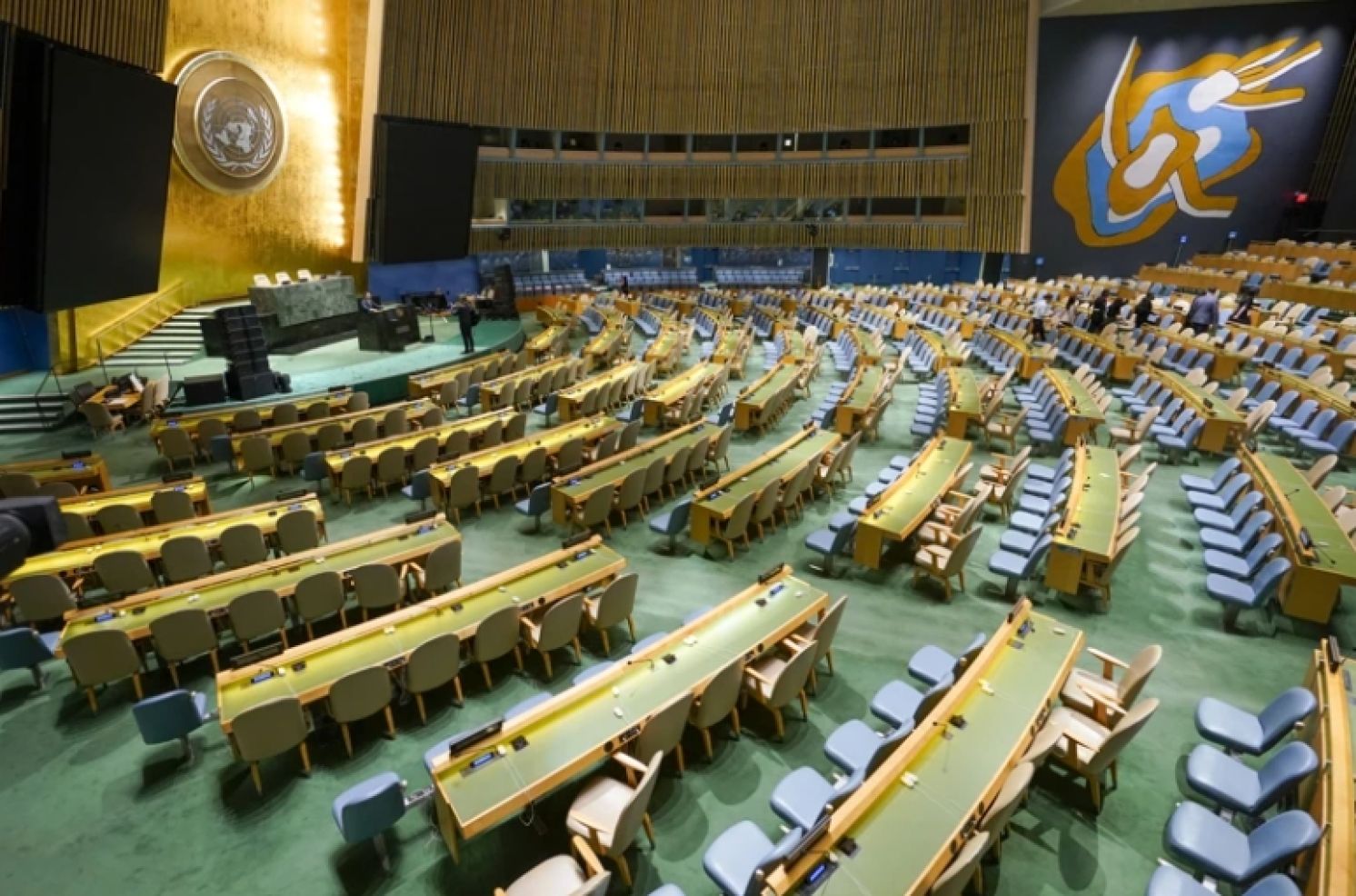
In Challenging Resolution 2758, Lai Administration Chose Wrong Battlefield
China Times Editorial, September 9, 2024
The 79th session of the United Nations General Assembly took place in New York on September 10. The administration of President Lai Ching-te has actively campaigned for the international community to understand the content of U.N. General Assembly Resolution 2758 correctly, arguing that it does not mention Taiwan, and China has no right to claim that it represents Taiwan. Ruling Democratic Progressive Party (DPP) legislators grasped the momentum and tried to emulate the Australian Senate in pushing for the Legislative Yuan to pass a resolution that the U.N. resolution does not involve Taiwan.
In July, the Lai administration hosted the fourth Inter-Parliamentary Alliance on China Policy (IPAC). It directed a resolution to oppose mainland China's deliberate misinterpretation of Resolution 2758 to restrict Taiwan's international space. After returning to Australia following the IPAC meeting, senators David Fawcett and Deborah O'Neill introduced an emergency resolution that Resolution 2758 did not accord the People's Republic of China sovereignty over Taiwan, nor did it determine Taiwan's future status in the United Nations. In order to internationalize the Taiwan issue and advocate a “Two-State theory”, the Lai administration directed and acted on the issue of Resolution 2758 unilaterally, believing that it could reap political dividends from it. However, while various countries are watching the development indifferently, it is foreseeable that such an act will expose Taiwan's dilemma of being isolated and helpless.
During the administration of President Ma Ying-jeou from 2008 to 2016, due to cordial cross-strait relations and a diplomatic truce, Taiwan could attend World Health Assembly (WHA) and International Civil Aviation Organization (ICAO) meetings as an observer. Since the DPP returned to power in 2016, China has used Resolution 2758 to boycott Taiwan's UN participation. More recently, Beijing has actively linked the resolution with the “One China” principle.
Chair Laura Rosenberg of the American Institute in Taiwan (AIT), who was tasked with taking countermeasures, noted in Taipei in January that Resolution 2758 does not determine the status of Taiwan, does not preclude any country from establishing diplomatic relations with Taiwan, nor does it preclude Taiwan’s meaningful participation in the United Nations system. In the US congressional hearings, Assistant Secretary of State for Asia and the Pacific Kangda and Deputy Assistant Secretary Lan Moke also questioned Resolution 2758 of the United Nations General Assembly and its links with the related “One China” principle.
The narrative that Taiwan’s political status is undetermined is completely in line with President Lai’s course of “pragmatic Taiwan independence” and “Two-State Theory.” Assuming endorsement by the United States, the Lai administration has chosen to blatantly challenge the 53-year-old Resolution 2758 and spared no effort to bring the matter to the U.N. General Assembly to attract international attention and indirectly turn Taiwan into an international issue.
However, dissenting opinions argue that before Resolution 2758 was adopted, Taiwan had China's representation in the United Nations, and after Chiang Kai-shek's representatives were expelled from the United Nations and all organizations related to it, it would be too far-fetched to interpret Resolution 2758 as irrelevant to Taiwan and infer that Taiwan's status is undetermined. It is not surprising that there is a disagreement on the content of Resolution 2758 due to ideological considerations, but to challenge the effectiveness of Resolution 2758 and change the status quo must face political reality. The most solid bastion of China's diplomacy may be the United Nations, the mainland has 183 countries with diplomatic relations, and Taiwan has only 12, President Lai chose the United Nations as the main battlefield, not only shows that he is unfamiliar with international politics but also does not hesitate to gamble on Taiwan’s national interests.
In response to Resolution 2758, the United Nations Office of Legal Affairs (OLA) has repeatedly issued legal opinions, such as "Taiwan is part of China" and "Taiwan has no independent status as a province of China"; Official documents of the United Nations system always refer to Taiwan as "Taiwan, Province of China" or "China Taipei", and to change these norms, which have been in place for many years since 1971, Resolution 2758 must be repealed or amended.
But the paradox and contradiction are that although the United States took the initiative to raise issues related to Resolution 2758, the United States has yet officially propose support for Taiwan's participation as an observer even at the World Health Assembly, and U.S. National Security Advisor Jake Sullivan recently stated in Beijing that the U.S. “One China” policy remains unchanged and does not support Taiwan independence, “Two Chinas,” or “One China, one Taiwan,” let alone formally deny the validity of the Resolution 2758 at the United Nations. Likewise, the relevant resolutions passed by the Australian Senate have not affected Australian government’s “One China” policy, China and Australia are currently focusing on building a comprehensive strategic partnership, and the motions of the Australian Senate on Resolution 2758 can hardly arouse the response of the international community except for Taiwan.
More importantly, diplomatic recognition is the key to Taiwan's return to international organizations. Given that Resolution 2758 does not mention Taiwan, Taiwan's status is undetermined, and the United States has no position on the issue of Taiwan's sovereignty, these facts cannot change the reality that Taiwan has only 12 diplomatic allies; All major countries, including the United States, have so far not recognized Taiwan as a sovereign state. To gain more international space, Taiwan’s limited resources should be used to enhance its bilateral relations with other countries and actively participate in regional economic integration, rather than engaging in a diplomatic scorched earth war that ignores the situation without a strategy. Predictably, the Lai administration's challenge to Resolution 2758 will continue to be futile. This attempt only satisfies Taiwan’s independence ideology sentiments, it will however risk causing cross-strait hatred to soar and the security situation in the Taiwan Strait to deteriorate.
From: https://www.chinatimes.com/opinion/20240909003836-262101?chdtv